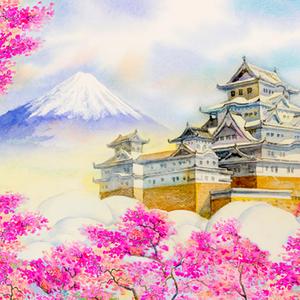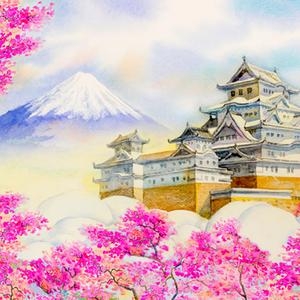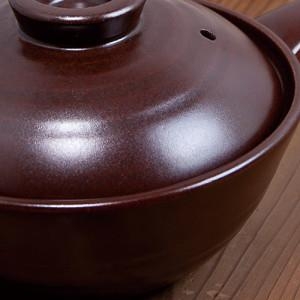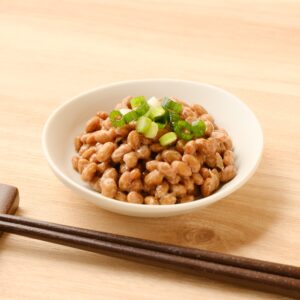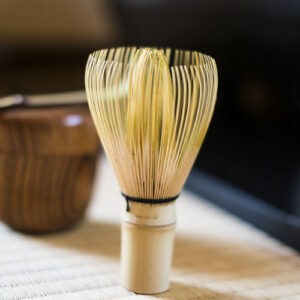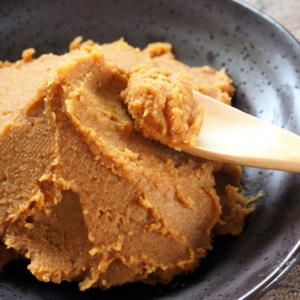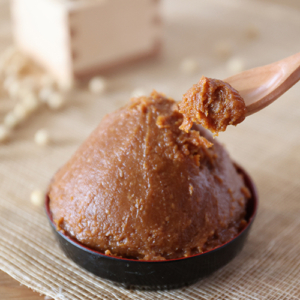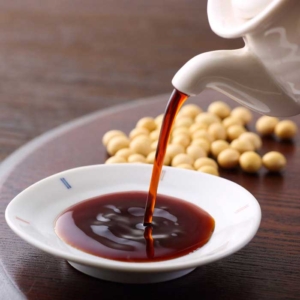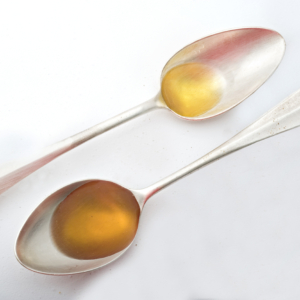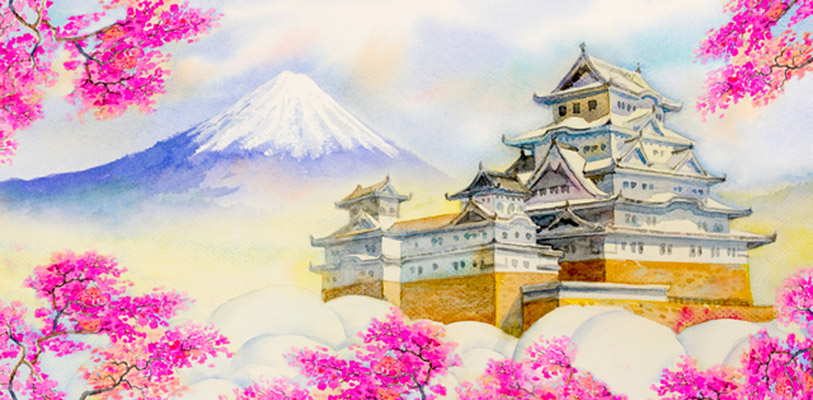
According to the Mastercard-CrescentRating Global Muslim Travel Index 2017 (GMTI 2017), there are 150 thousands Muslim people visited Japan in 2014. Then in 2016, the number increased by 4 times, as 700 thousands Muslim people visited Japan. That number occupied around 3% of total visitors that came to Japan in that year.
In 2018, it is predicted that visitors to Muslims will exceed 1 million, and in 2020 when the Tokyo Olympic Games and the Paralympic Games will be held this number will be even bigger, about 1.4 million people. That will occupy 3.5% of the total visitors to Japan.
One of their main goal to go to Japan is to try and experience Japanese authentic local foods, places, and cultures. But, there are a lot of Muslim visitors who feel very bothered that they are unable to try local food because many of the foods are not halal.
According to the Muslim Omotenashi Handbook (2014 edition) made by Bureau of Industrial and Labor Affairs of Tokyo Metropolitan Government, a lot of Muslim people mainly have trouble when they want to buy foods and souvenirs in Japan.
“There are not many restaurants that we can safely eat (because pork and alcohol are used as ingredients).”
“I really want to buy a Japanese snack as a souvenir, but I gave up because the Ingredients aren’t written in the package so I don’t know if it’s safe to eat or not.”
―are some of the voices from Muslim visitors in Japan.

Fortunately, there are actually some of Muslim-friendly Japanese authentic products!
These products we are going to tell you are high-quality authentic Japanese Muslim friendly products that are just perfect for tourists who want to try and “feel” Japanese authentic foods and culture. Not only for tourists, but these products are also actually loved by Japanese people themselves!
Here we present you 6 Japanese authentic products you should get when coming to Japan, to be able to feel the true taste of Japan.
Recommended Japanese Muslim-Friendly Products
1. Organic Uji Matcha Powder
“You will not complete your Japan gourmet experience before tasting the real taste of matcha!” This is one of the sentence I can say after visiting Japan.
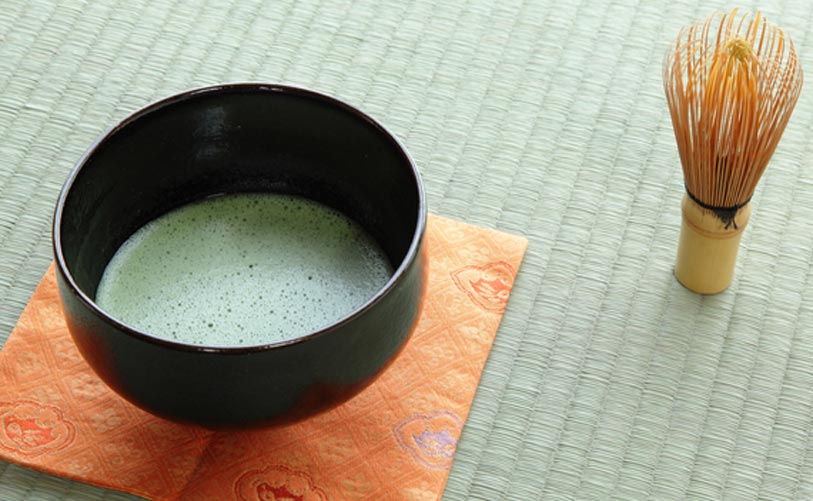
In recent years, matcha has become increasingly popular drink internationally, not only because of its taste but because matcha also has a lot of benefits for health and beauty effect. And yes! It is one of the muslim-friendly foodstuff!
Matcha is actually 100% of green tea leaves that have been grounded into fine powder, therefore it has lots of nutrients from other teas. In fact, the nutrients in one cup of matcha equal to 10 cups of green tea.
In Japan, people drinks matcha in traditional tea ceremony along with Japanese traditional sweets (wagashi / 和菓子). But in modern time, matcha appears in many different shapes in drinks and foods.
To enjoy the delicious taste of matcha, simply pour 60 ml of 80 degree Celcius hot water into 2gr / 2 teaspoons of matcha powder. Stir for about 10-15 seconds and you can enjoy the authentic taste of Japanese high-quality matcha. You can also add honey for sweetener or milk to make a green tea latte.
Why Uji Matcha is special?
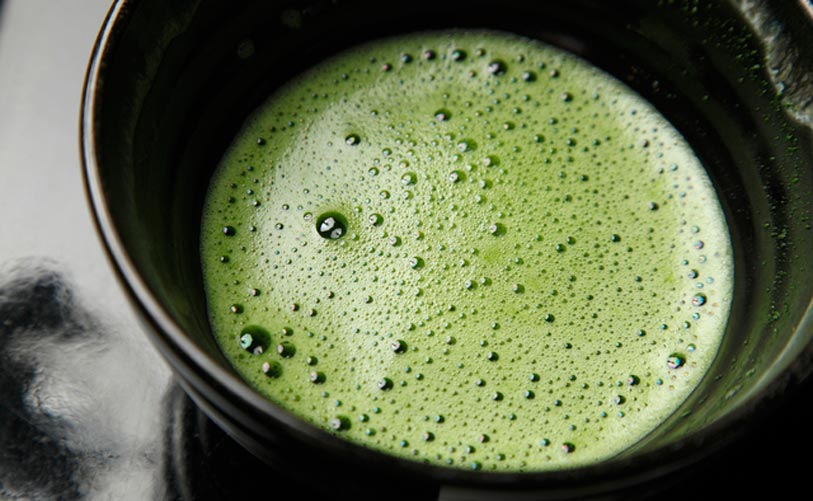
Uji City in Kyoto Prefecture, Japan is well-known for its superior quality of tea from the 1100s. They are considered to have the highest quality of tea cultivation in Japan. This product is cultivated in organic cultivation and have the JAS certification (Japanese Agricultural Standard) for organic agricultural product.
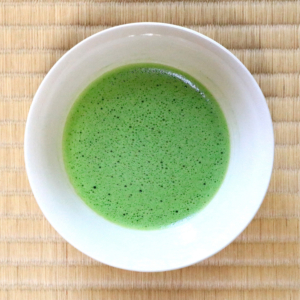
By carefully choosing the finest ingredients, this matcha has an elegant taste without bitterness. This Uji matcha uses the organic cultivated Uji tea leaves so you can enjoy plenty of mellow, rich, and natural flavor without worrying about any agricultural chemicals.
This organic Uji matcha will be your good choice for health and beauty!
2. Muso Halal Matcha Castella
Castella (カステラ, pronounced as “Kasutera” in Japanese) is Japanese sponge cake that became the specialty product of Nagasaki Prefecture. You can say that almost all of Japanese people have tried to taste it at least once.
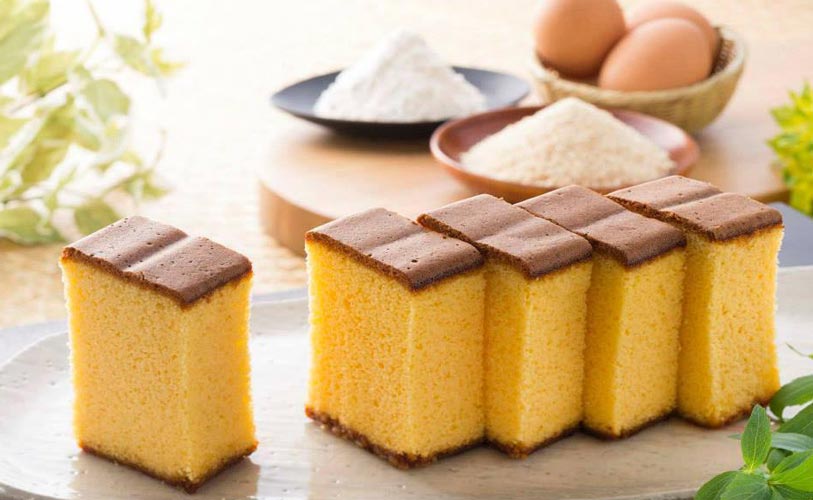
This cake was brought to Japan by Portuguese merchants in the 16th century. The name of Castella Cake is derived from Portuguese Pão de Castela, that has a meaning of “bread from Castile”.
What makes it different from simple western baked sponge cake is that Castella is traditionally made with non dairy product (like milk, cream, butter, etc). Therefore Castella is more healthier and has a lighter taste with soft yet dense texture of sponge cake.
The cake that is loved by Japanese people, Castella cake, can also be a great souvenir choice for foreigners. Try this Castella cake once, and taste the delicacy of Japanese snack in your visit in Japan.
The traditional-style Castella is usually made of simple raw materials such as egg, flour, sugar/honey, and mizuame (Japanese sweetener made by converting starch or to sugars). But, some of the Castella cake is also made with mirin to add more sweetness to the cake. That way, some of the Muslim tourists coming to Japan or Muslim people who live in Japan can’t really enjoy eating Castella because they are worrying that the Castella is not halal for them.
So, how Muslim can still enjoy eating Castella cake without worry?
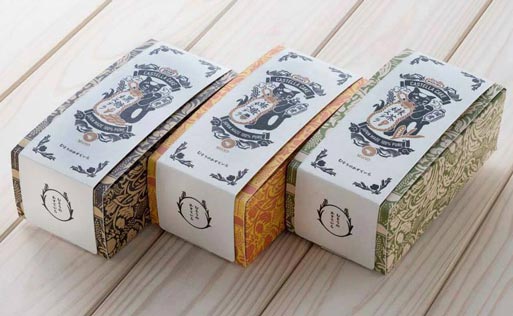
The Muso Halal Matcha Castella is the first Castella Cake made by domestic ingredients which have the halal certificate by Nippon Asia Halal Association. Muso is using Uji Matcha that has a high in fragrance and slightly bittersweet flavor.
Because it has a halal food certification, Muslims can eat it without worry. Plus, the matcha flavor is very popular among foreigners. But of course, not only Muslim people, everyone can enjoy the taste of this authentic, traditional castella cake with the best domestic raw materials.
3. Senbei Rice Crackers
Soft and crunchy texture, sweet-savory taste, faint delicious aroma, that’s what you feel when you eat it. Senbei (煎餅) is a very famous Japanese traditional snack and well-known inside and outside Japan. But for you who never know what is Senbei before, it is Japanese rice crackers which are, of course, made from rice.
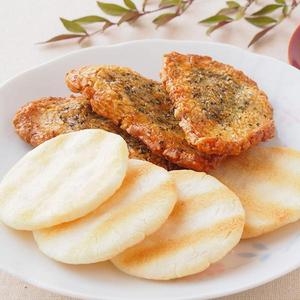
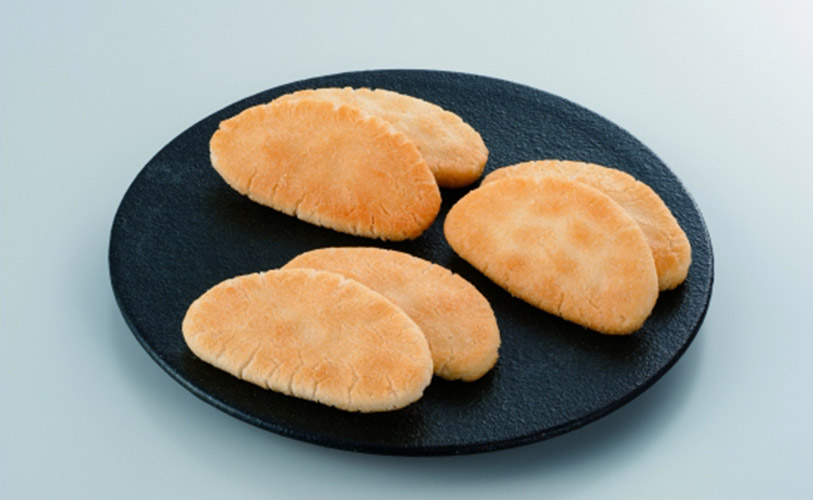
Senbei is first introduced to Japan from China during the Tang Dynasty, and made from ingredients like potato and wheat flour or glutinous rice.
This early Senbei has a texture like a cake, distinctly different from what most people would consider Senbei today. Modern Japanese Senbei made from toasted rice was created during the Edo Period when the salty soy sauce variety of Japanese rice crackers became particularly popular.
In the eastern Japan region (Kanto), Senbei is usually made from non-glutinous rice flour mixed into dough and formed into flat discs. However, Senbei made from glutinous rice can be found in the western Japan region (Kansai). Senbei is usually baked or grilled, and come in many varieties, shapes, sizes, and flavors.
We found that many Senbei has alcohol and pork-based materials included in their ingredients, so Muslim people might hesitate to try the original Senbei from Japan, especially if they cannot read the Japanese language. It’s very sad that they can’t taste the deliciousness of Senbei because of that.
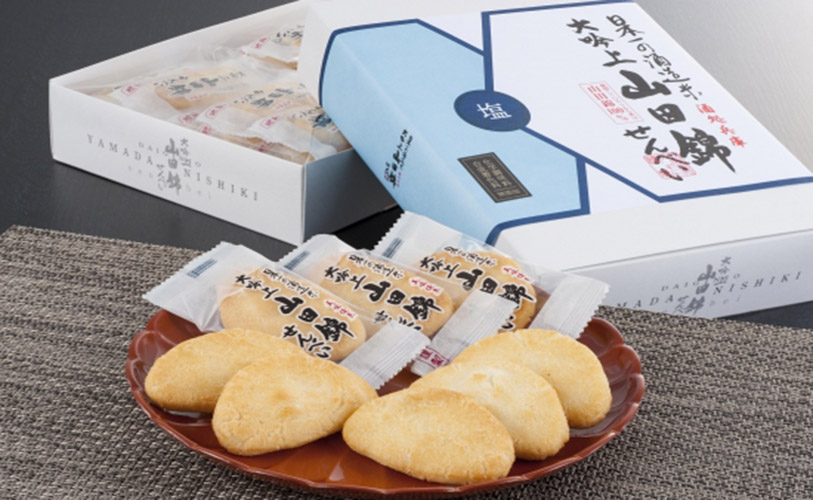
But don’t worry, now there are halal certificated Senbei. One of the halal Senbei you can trust is the Arimoto Halal Yamadanishiki Senbei. This Senbei has received the halal certificate from Nippon Asia Halal Association (NAHA), so Muslims can safely eat it without worry.
Aside from being halal, this Senbei is made with short-grain Japanese rice “Yamadanishiki.” famous for its use as an ingredient for making high-quality sake (Japanese liquor which made from rice). As known well, Japanese people really love sake, and they really value high-quality sake.
This Yamadanishiki rice is particularly desired by sake brewers to make high-quality sake. But of course, for this Senbei, the rice is only used as ingredients and no alcohol included. This Senbei is also made without using any additives.
This Senbei is very suitable for everyone, especially Muslim people who want to taste the authentic taste of Japanese traditional snacks. It’s also very much a good souvenir from Japan.
Now you know about halal and Muslim friendly foods you can enjoy in Japan at ease. These foods (and drink) suit really well as souvenirs from Japan too!
Aside from foodstuffs, you can also feel the true taste of Japan from Japanese traditional handicrafts too.
Next, we want to tell you about some high-quality Japanese traditional handicrafts full of Japanese cultural value. These authentic Japanese handicrafts have been produced and developed for many years and are all made by the hands of skillful craftsmen. Even if you ask Japanese people themselves, they will acknowledge the fine quality and authenticness of these items. These products will definitely amaze you!
4. Handmade Kiri Wood Rice Bin
Kiri Rice Bin – Special Made By Senshuu Tomekawa
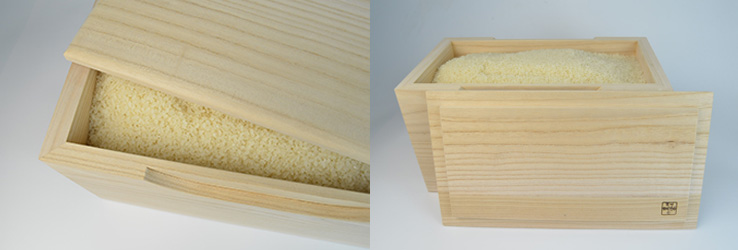
Are you considering having a high-quality, durable rice container from Japan?
The product is handmade by Kiri Tansu artisans. Using the special characteristics of Kiri Wood (Paulownia Wood) that absorbs moisture, the container can raise the airtightness of the rice bin. Not only that, this rice bin will be able to protect rice from moisture and insects and sustains the taste of rice.
With the slick design and natural wood material, this rice bin container can be a perfect gift for you and suitable to pack for your relatives.
5. Handmade Japanese Teapot
Sideways Grip “Shojiki Kyusu” Teapot from Shikou Toubou Pottery
Have you ever thought about why the taste of the second boil of tea is slightly different even if the first boil is delicious? Tea lovers must have experienced it somewhere once.
That’s because the remaining drops in the teapot gradually became tannin, an astringent which can ruin the next tea servings. So when brewing a tea, you need to drain all the drops in the teapot before starting to brew the next cup of tea.
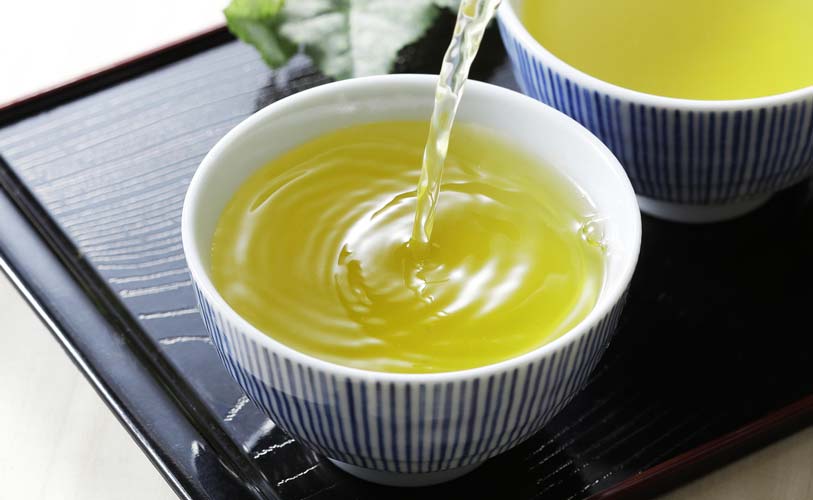
Now that you know the problem, you need to choose a proper teapot to brew the tea leaves. It needs to be a kind of teapot that will properly drain all the tea drops per serving.
The “Shojiki Kyusu” teapot made by Shikou Toubou Pottery (Shigaraki Town, Shiga Prefecture, Japan), is a handmade teapot made carefully one by one by high-skilled craftsmen, makes you be able to deliciously brewed any type of tea. With this, you can enjoy the mellow taste of tea without losing any richness and deliciousness of the tea leaves.
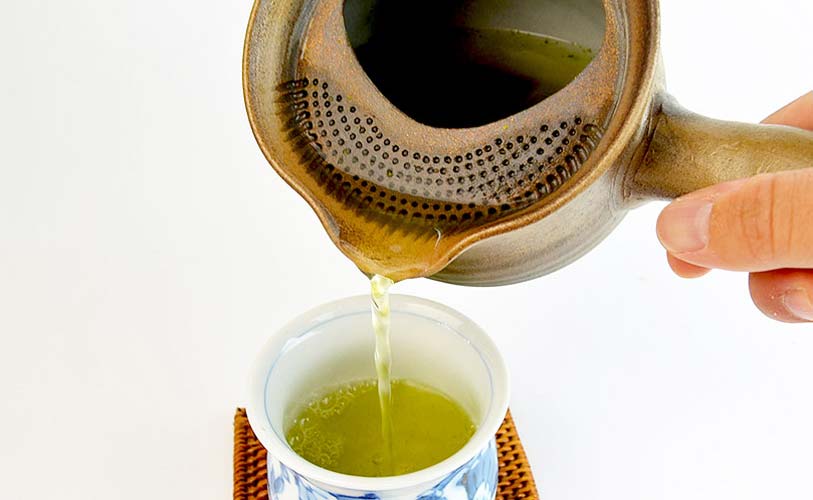
It is made by Mr. Keigo Konishi, certificated craftsman for Shigaraki Ware. The design is very detailed. It has 150 holes around the groove that can stop the tea leaves firmly. The feature of this “Shojiki Kyusu” is to narrow down the last drop without leaving any extra tea in the teapot.
In the area of Japan’s six old kilns, Shigaraki is one of a place for making big bowls (pots, strange houses, braziers, flowerpots). Pottery products that came from Shigaraki are called Shigaraki Ware. It has a long history of pottery tradition and become one of the most popular pottery products from Japan until now.
We want you to experience the true taste of Japanese tea using the authentic Japanese-style teapot made by high-skilled craftsmen. Not only enjoying the taste but also get the health benefits from the tea.
6. Handmade Japanese Knife
Sanjo Yoshimune Tsuchime Santoku Knife
“A kitchen without a knife is not a kitchen.” That’s what Japan’s Iron Chef, Masaharu Morimoto, said.
A knife is indeed an important aspect of the dish-making world. It’s a very crucial kitchen tool for people who are cooking every day.
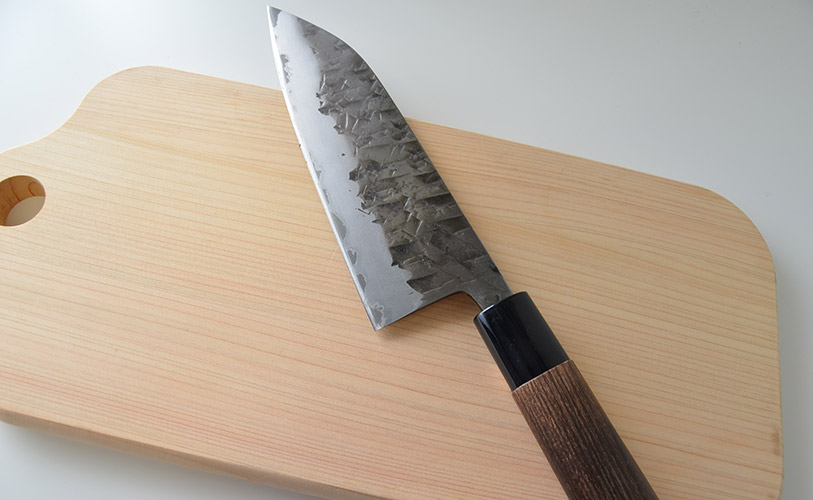
Japanese people have a fixation to be very particular about Japanese cuisine as their meal. Their cooking is very delicate, even with the cutting operation such as carving, or peeling, it can be said that it is a series of detailed work requiring the accuracy of the fingertip.
Japanese knives have developed while adapting to the delicacy of Japanese cuisine. It is said that the prototype is from the Japanese sword, and its sharpness can be said to be identical to the Japanese knife.
One kind of the knives that are commonly used in Japanese houses is the Santoku knife (all-purpose kitchen knife). Since the blade is thin, you can use it to cut vegetables, meat, and fish, that’s why it’s called santoku (三徳, means all-purpose).
Santoku knife was created by combining Nakiri Bocho knife (Japanese traditional knife used for cutting vegetables) and Gyuto knife (Western knife used for cutting meats) because after the war ended, the number of Japanese who make meat dishes and western food at home increased.
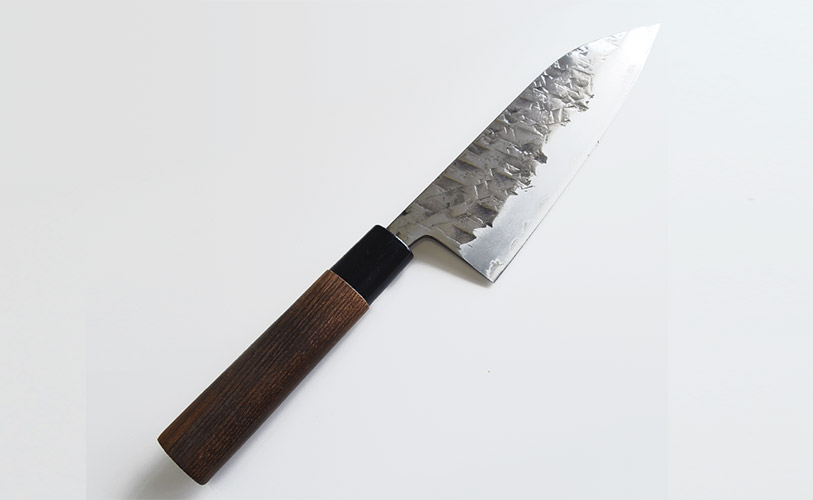
Tsubame dan Sanjo City in Niigata has been named as a place of manufacturing since ancient times, and many artisan cultures have been nurtured there. Blacksmithing is so famous there, that the cities have been called “City of Smith”, and they are also famous as knife-making towns. One of the best knives-makers in Sanjo City is the Kawamura Houchou Manufacturing company. They make an authentic Japanese Santoku knife product named “Sanjo Yoshimune Tsuchime Knife.”
What makes this Sanjo Yoshimune Tsuchime Knife special is they use steel and stainless steel as materials, and the steel used is high-quality white steel called Yasushi-hagane No. 1 white steel. With a very low rate of impurities and high carbon content steel, you cannot doubt the sharpness of this knife. It can be said that kitchen knife using this material is very rare.
This knife has a three-layer structure with white steel as the core is covered by stainless steel at both sides, just like a sandwich formed by stainless steel-white steel-stainless steel. This three-layered structure makes this knife harder to rust and can maintain its sharpness longer.
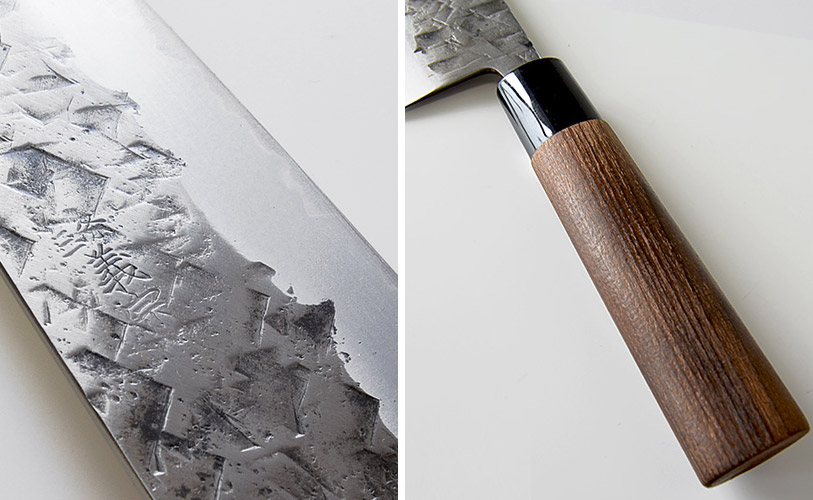
Moreover, the appearance of this knife is very “Japanese” with a beautiful hammered pattern (Tsuchime) on its side. There is an inscription indicating the brand of “Yoshimune,” and the handle of the knife is a deeply colored wooden fabric that’s very easy to grip. You just need one look to know that this is indeed a high-quality Japanese authentic traditional craft.
You can feel the enjoyment of using this knife for making dishes in your kitchen or give it as a present so they can feel the happiness too. This is an ideal gift for people who love cooking, a very special cooking utensil.
Great! You have discovered some astounding Japanese authentic products plus it’s muslim-friendly.
Hopefully, this article can be your reference when choosing high-quality products from Japan. You can also use these products as souvenirs for your loved ones, families, friends, and colleagues.
With these, you will definitely be able to feel the true taste of Japan!
I hope you will enjoy your trip to Japan!

